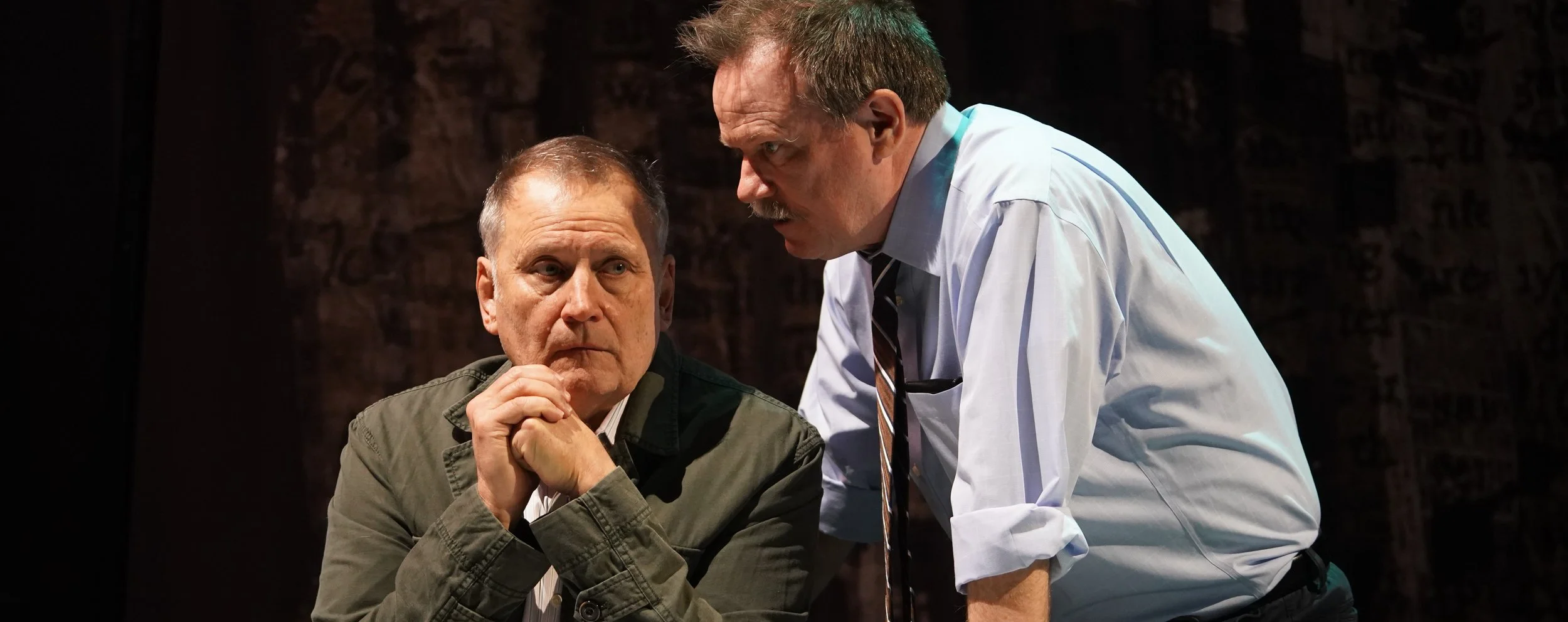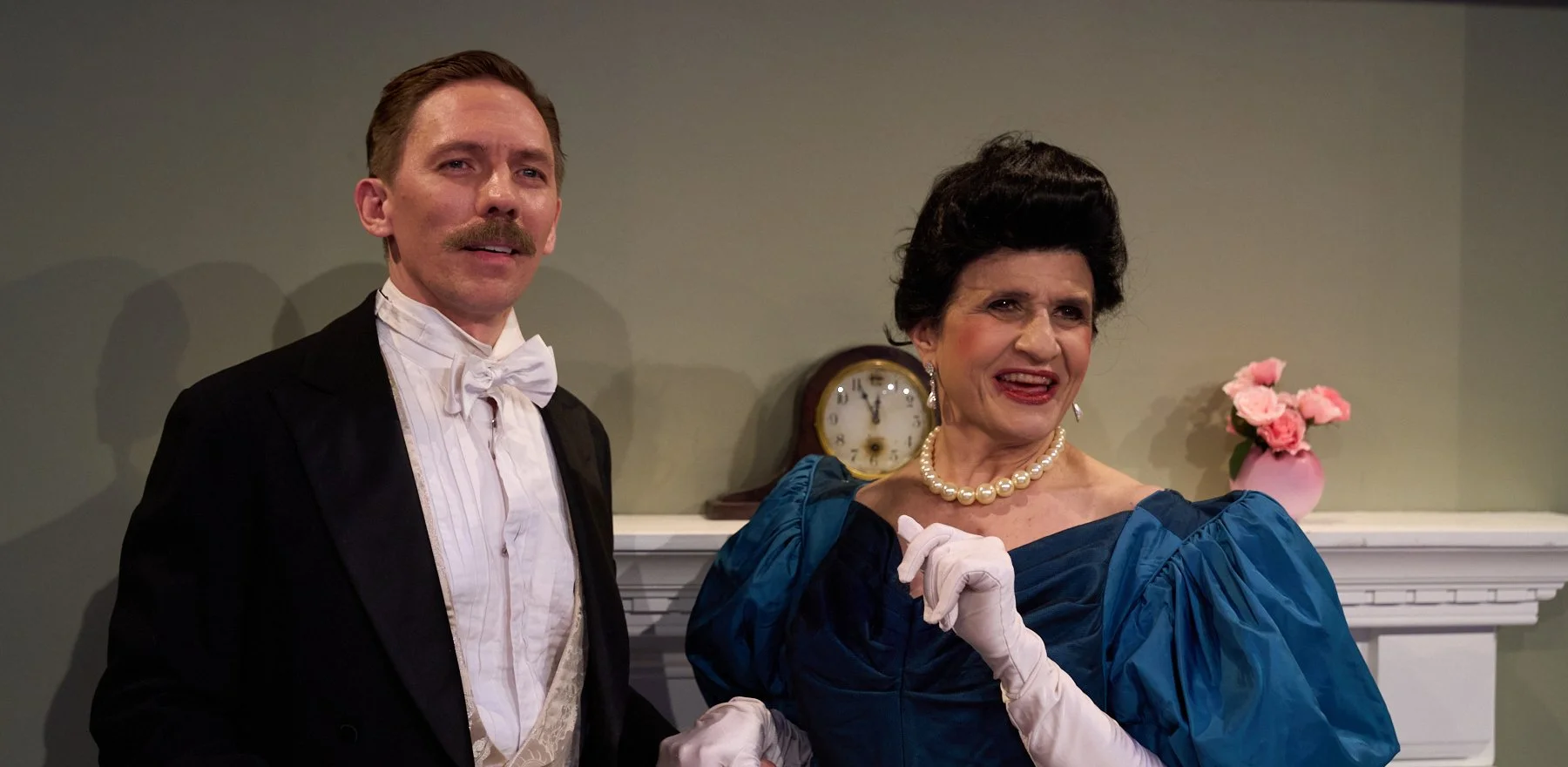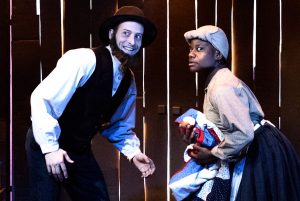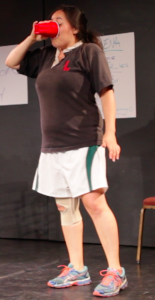Underground Railroad Game, a bold and imaginative theatrical piece created by Jennifer Kidwell and Scott Sheppard, is a bawdy satire in which the audience is made to look head-on at the serious issues of race, sexuality, and how we deal with them in the aftermath of slavery. Guided by a thoughtful director, Taibi Magar, the piece exposes the damage that has been done to the national psyche by slavery’s devastating legacy, especially in terms of interracial relationships and the ways we communicate.
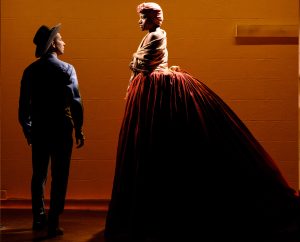
Two teachers—Caroline (Kidwell), an African American woman, and Stuart (Sheppard), a white man, are teaching a fifth-grade class project on the Civil War. Dressed as a Quaker abolitionist, Stuart aids a distressed runaway (Kidwell) in a campy tête-à-tête that establishes the sexual energy between the two characters immediately. Then the action abruptly changes to the bright, fluorescent-filled modern classroom where the two are enthusiastically teaching the issues of the Civil War. The teachers quickly include the “class” (i.e. the audience) in the “games” of war, incorporating “safehouse signs” and “slave dolls.” Soon the battle of the sexes is added to the mix, as well as interracial relationships, as the teachers spend time together outside the classroom.
Kidwell as Caroline gives a raw, bold, yet vulnerable interpretation of the African-American woman and her torn relationship with white men. Sheppard’s comical yet painfully exposed performance as Stuart breaks through serious barriers that society doesn’t often discuss. Sheppard and Kidwell’s dramatic exposition feels especially relevant with the racial tensions in the U.S. right now. Magar’s choices as director show the negative effects of slavery’s legacy and the way it has stunted the nation’s ability to heal through open and honest discourse.
The authors use stereotypes of African-American women from old movies such as Gone with the Wind, yet Magar has invested the piece with both melodramatic flair and honesty. Particularly riveting is a segment when Caroline is dressed in Mammy costume in daguerreotype silhouette. As Kidwell plays the runaway slave hiding in the barn, her blood-red, antebellum skirt is the focus as the character sensually moves her arms and upper body in beautiful rhythm with her song that draws Sheppard’s abolitionist to her breast. They offer a tender, painful look at the two characters’ complicated sexual relationship as a result of the shackles of enslavement. Kidwell seductively pulls her skirt up and Sheppard kneels down to her, disappearing in the velvet billows. The skirt eventually becomes a pup tent where the two teachers are discussing social issues and their relationship, foreshadowing the theme of the power of language and the bruises of misunderstanding because of white privilege.
The designers contribute sinister fog, dogs barking, creaking barn doors, crickets, and bobwhites chirping (sound design is by Mikaal Sulaiman) in the distance.
Kidwell and Sheppard have been working on this piece since they met as teachers several years ago; it is produced with the Philadelphia-based troupe Lightning Rod Special. Through the period story, they carefully expose the sexually charged, precarious relationship between African-American women and white men in this country today.
Magar guides them through some volatile moments: triggered by Stuart’s response to the phrase “nigger lover” in a classroom prank, Miss Caroline rears up in righteous indignation into a fiery S&M dance with him that is not for the prudish nor for small children. The two rage against their attraction for each other and the forces that pull them apart, leaving Teacher Stuart completely bare on stage, both physically and emotionally, and Kidwell takes Sheppard to school in an S&M dance that leaves him completely exposed, revealing a sinister essence at the core of their relationship. The play ends with both standing barren and disconnected. But with that, it is clear that only through empathy and open discussion, can we heal from our history’s wounds.
Although the past has left its ugly mark, Underground Railroad Games challenges us to look at our past with honesty and move ahead to a positive future.
Underground Railroad Game plays at Ars Nova (511 West 54th St.) through Nov. 11. Performances are at 7 p.m. Mon.-Wed. and at 8 p.m. Thurs.-Sat.; matinees are at 3 p.m. Saturdays. Tickets are $35; for more information, visit arsnovanyc.com or call (212) 352-3101.


